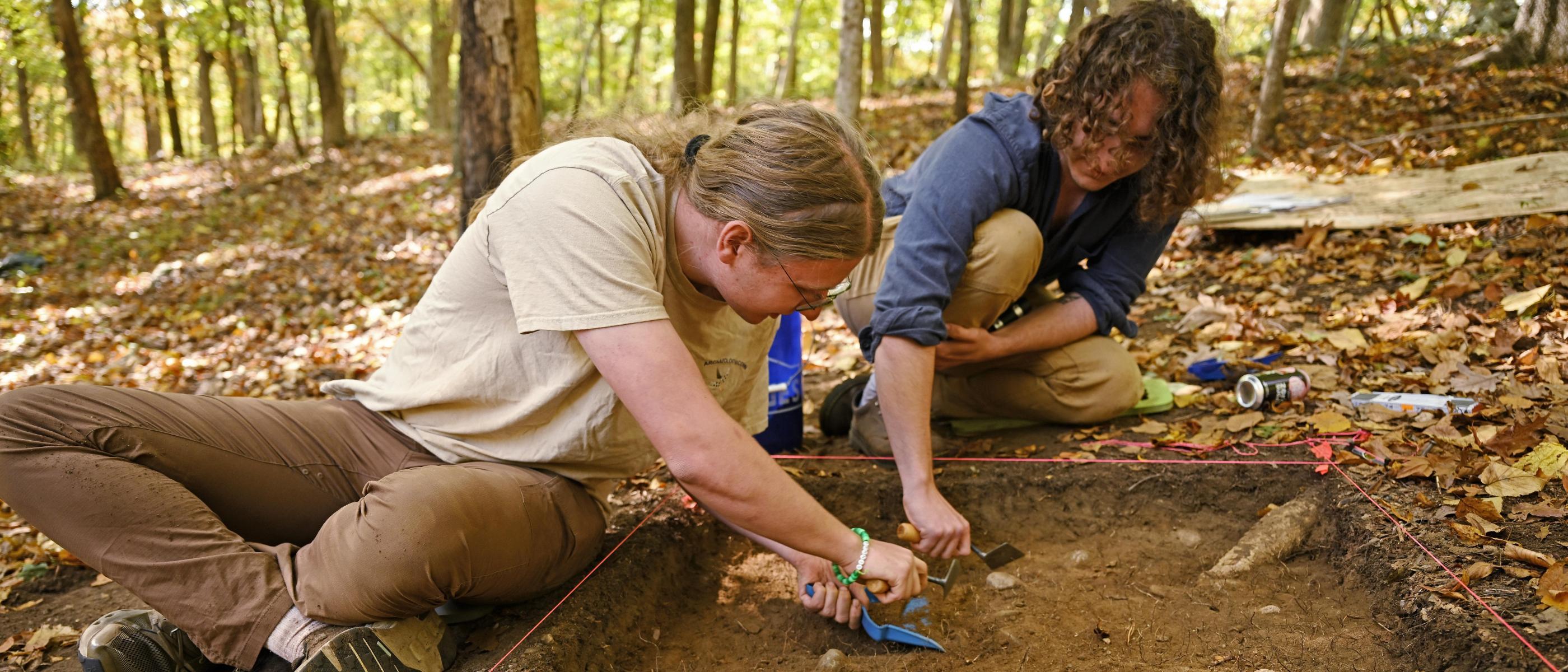Archaeology@Conn is a comprehensive framework that trains undergraduates in archaeological methods, ethics, theory, and practice, all within the tradition of the liberal arts. This framework includes the Archaeology Concentration within the Anthropology Major, the work of the College Archaeologist, and ongoing collaborative research projects led by archaeology faculty. Our curriculum emphasizes practice-based training relevant to careers in the heritage conservation sector, including positions at cultural resource management (CRM) firms, as well as municipal, state, and federal agencies. We focus on developing the competencies necessary for successful collaboration with multiple stakeholders, while also challenging the Eurocentric perspectives often found in archaeological anthropology. Students can earn formal certifications in methods and skills, demonstrating their readiness for CRM positions, and advanced research and training opportunities are available for those preparing for graduate studies in archaeology.
“Archaeological field and lab training at Connecticut College equips students with the procedural, analytic, and technical skills needed for advanced undergraduate research as well as career paths in academic and public sectors.”
Field Archaeology Training. Field methods training develops essential skills for archaeological research, including excavation, mapping, and data recording. Hands-on fieldwork teaches students how to conserve and interpret archaeological resources while enhancing problem-solving and critical thinking abilities. This experiential education prepares students for advanced study and careers in cultural resource management. Relevant coursework includes Field Archaeology Methods (ANT 394) and Discard(-s)(-ers)(-ing) (ANT 393).
Laboratory Archaeology Training. While fieldwork is often highlighted, up to 80 percent of archaeological research happens in the lab. Here, students connect classroom theory with real-world application by processing, analyzing, and interpreting field data. Training includes artifact identification, cataloging, and analysis, as well as developing critical thinking and analytical skills. Students also gain experience with relational databases, statistics, and GIS software, essential for most archaeological research projects. Relevant coursework includes Lab Archaeology Methods (ANT 395), Practicing Archaeology (ANT 204), Experimental Archaeology (ANT 396), as well as our laboratory archaeology internship program at the Mohegan Tribal Historic Preservation Office.
College Archaeologist. The College Archaeologist is a heritage stewardship role that sets Connecticut College apart from its peers. Our College Archaeologist, Professor Graesch, works closely with the Mohegan Tribe, Mashantucket Pequot Tribal Nation, Eastern Pequot Tribal Nation, and the Office of the Arboretum to oversee the conservation, management, and study of cultural heritage resources within the 750 acres managed by Connecticut College. These resources, which include numerous archaeological sites and features, collectively represent over five thousand years of human interaction with local landscapes and ecosystems. The College Archaeologist serves as an advocate for these non-renewable heritage resources.
Human Remains Statement. The Department of Anthropology at Connecticut College is NAGPRA1 compliant and adheres to ethical practices that preclude the disturbance, acquisition, and/or curation of human remains. In our commitment to respectful and lasting relationships with our sovereign neighbors, we support the repatriation of all Indigenous North American ancestors and funerary objects currently held without permission at institutions of higher education, as well as in museums and other repositories, in the United States and abroad.
1 Native American Graves Protection and Repatriation Act, Pub. L. 101-601, 25 U.S.C. 3001 et seq., 104 Stat. 3048 (1990)
